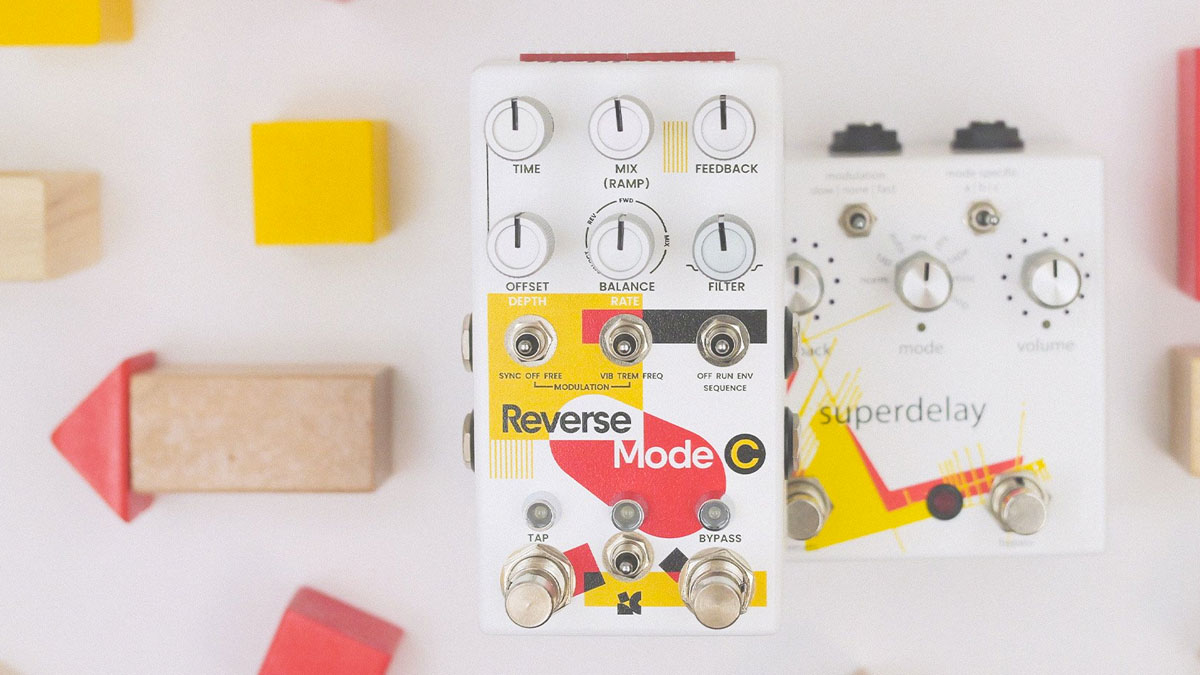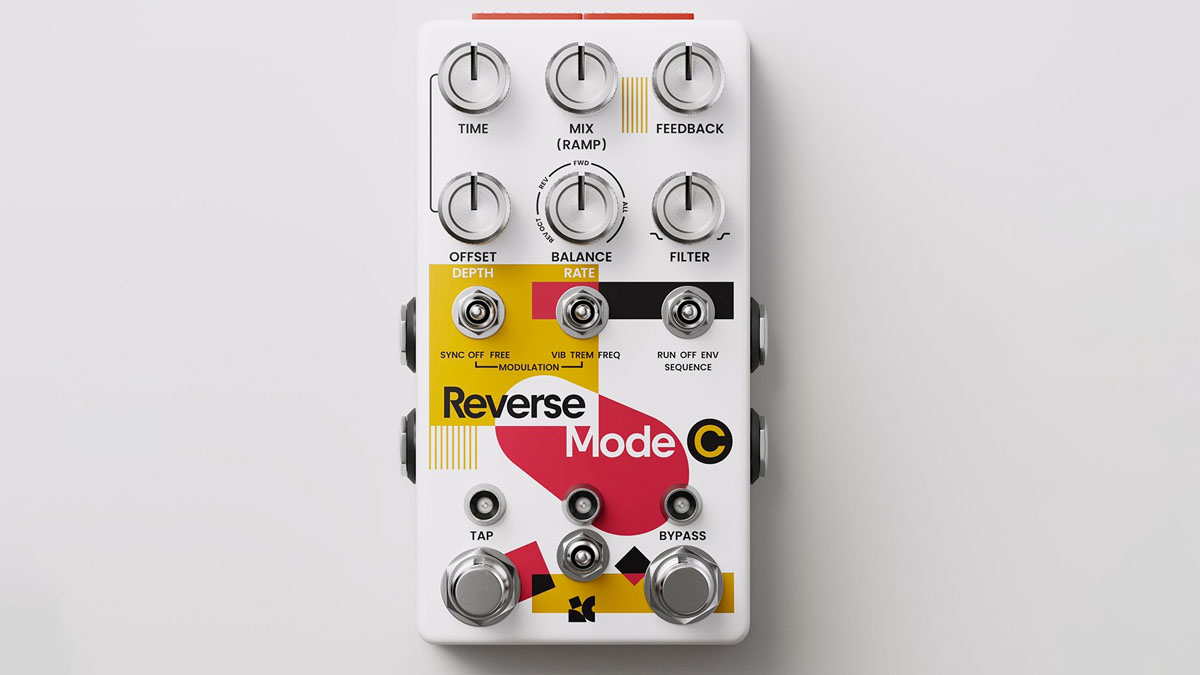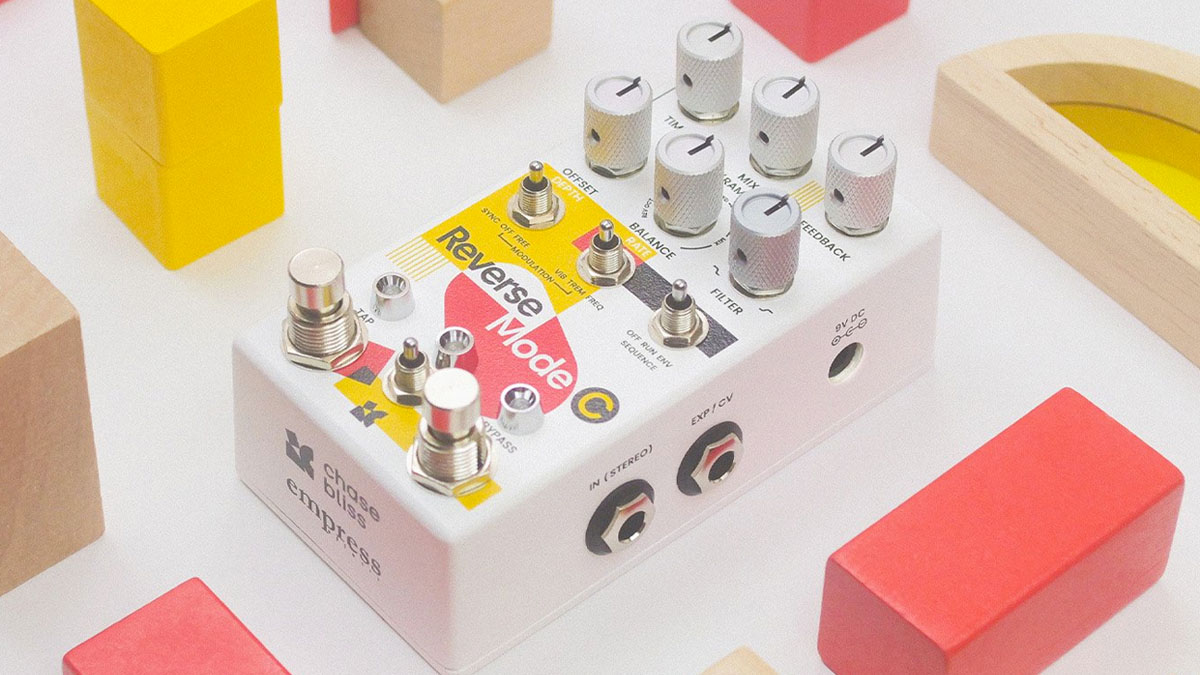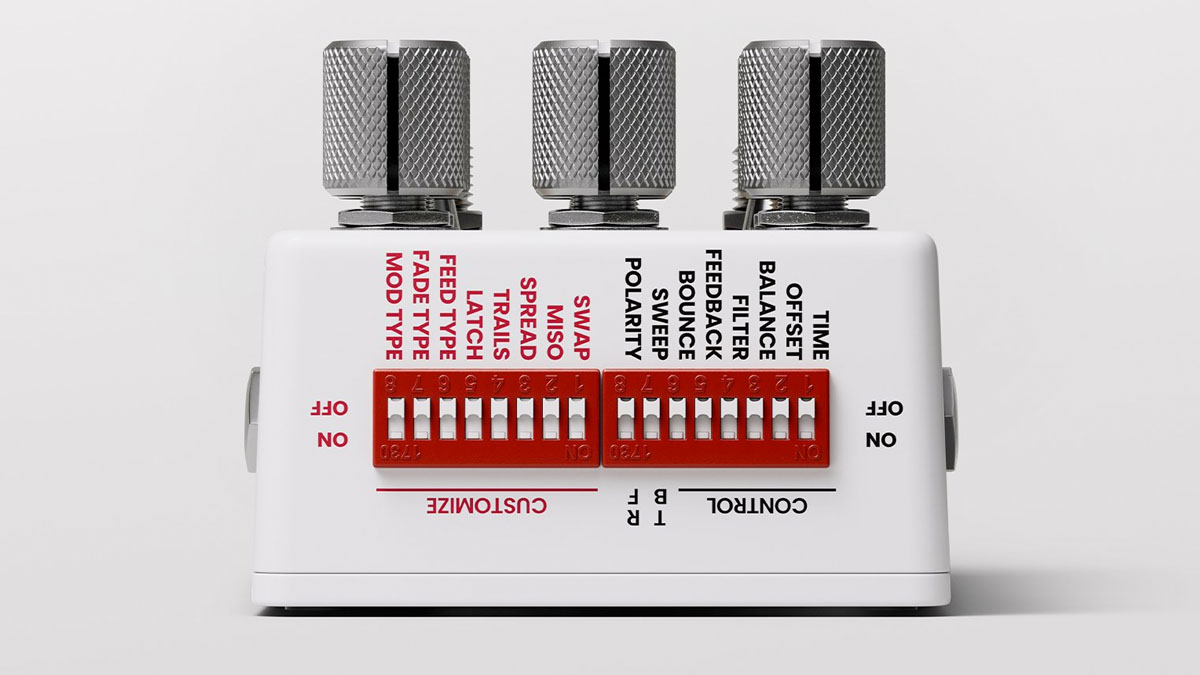Chase Bliss teams up with Empress Effects for the Reverse Mode C – a trippy multi-directional delay pedal with modulation
This weird and wonderful collab between the pedalboard superpowers was inspired by the Empress Superdelay and is available to order up until 31 August 2023, after which it's gone

Chase Bliss has unveiled the Reverse Mode C, a stompbox designed in collaboration with fellow pedalboard mavericks Empress Effects, and one that could loosely be described as an echo or delay pedal but comes with such a dizzying array of off-the-wall features that it defies easy categorisation.
Reverse Mode C is the first pedal in Chase Bliss’s Small Batch Bliss collection. You have up until 31 August to order one, after that the pedal will be discontinued – and maybe brought back in the future for another batch with a revised enclosure, depending on demand.
The thinking behind the Small Batch Bliss pedals is that everyone who wants one can get one – Chase Bliss will fulfil all orders received during the window – and the format allows them to get really creative with the design.
Here, Chase Bliss can build something niche, something weird without ever worrying about making something that no one wants to buy. And as electric guitar tones go, Reverse Mode C is certainly capable of weird.
The inspiration for the Reverse Mode C goes back to 2008 and the release of Empress Effects’s Superdelay, which fast became a favourite of Chase Bliss boss Joel Korte.
His favourite mode was the Octave Tap, though he always referred to it as Reverse Mode C. And for Chase Bliss’s 10th anniversary, Korte has put it in a pedal as a sort of tribute to the original.
There’s a lot to get into here. Reverse Mode C is described as multidirectional echo, comprised of “multiple distinct” voices. It has an onboard sequencer, modulation, and, as per the Chase Bliss style, there are 16 dip switches on the top of the enclosure to customise the pedal’s functions.
Want all the hottest music and gear news, reviews, deals, features and more, direct to your inbox? Sign up here.

There are six main control knobs on the pedal. Time sets the master delay time and has a really long 4.19 seconds when maxed out. Offset separates the delay times of the three different delay voices – forward, backward and up – allowing you to dial in some weird rhythmic variations.
Mix controls the dry and wet signal. Balance sets the volume of the three voices and allows you to blend and isolate them. Feedback controls the number of repeats while Filter applies a low and high-pass filter – turn it rotate clockwise to remove low end, turn counter-clockwise to remove high frequencies.

There is a three-way toggle switch for selecting modulation. You can have this synced to the delay time or not. Another three-way toggle selects your modulation type, with the MOD type dip switch activating an alternate mode; choose from vibrato/chorus, tremolo square/tremolo ramp down, and frequency shifting (up/down).
A third toggle controls the sequencer. Again, you have hidden options here, more ways of bending your sound. The sequencer interacts with the Balance knob allowing you to skip muted voices or to leave rests in the sound.

Finally, there are two footswitches, both pulling dual-shifts. The Bypass footswitch can be held down to double sample rate for a maximum delay of 8.38 seconds (and a more lo-fi sound), while the Tap tempo footswitch can be held down to access a loop function.
Reverse Mode C is available to order now up until 31 August. It is priced $399. For more details, and to order, head on over to Chase Bliss.
Jonathan Horsley has been writing about guitars and guitar culture since 2005, playing them since 1990, and regularly contributes to MusicRadar, Total Guitar and Guitar World. He uses Jazz III nylon picks, 10s during the week, 9s at the weekend, and shamefully still struggles with rhythm figure one of Van Halen’s Panama.
